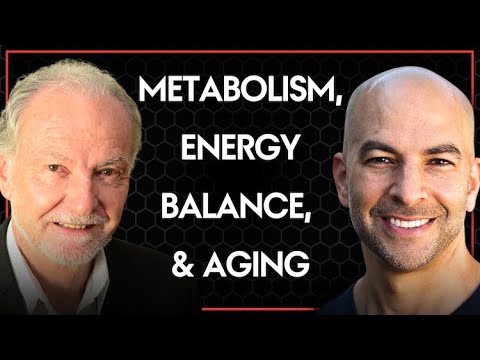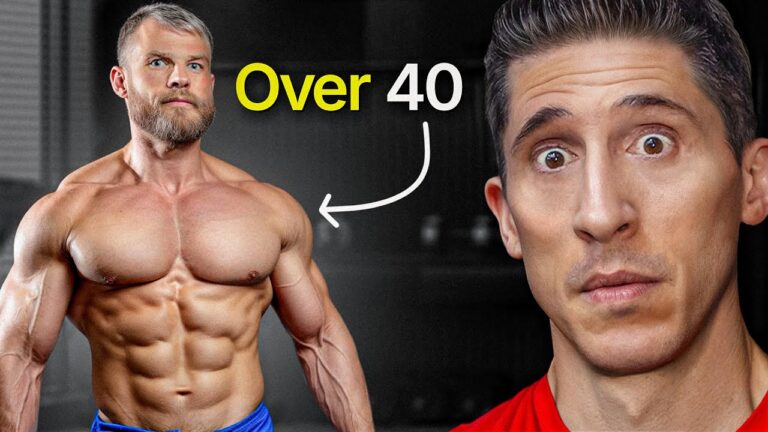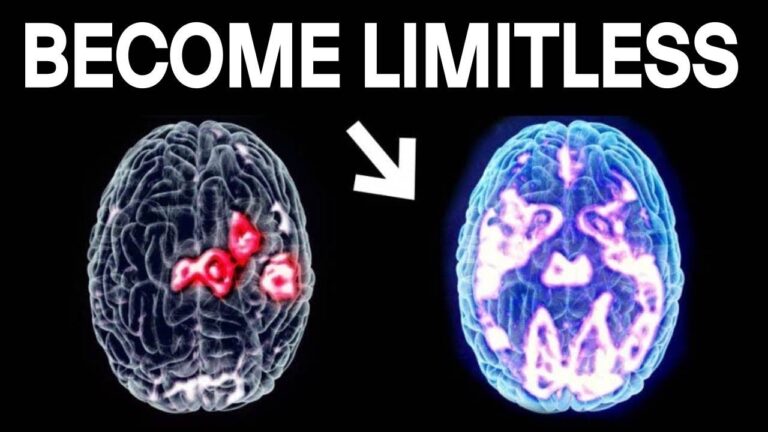The Metabolic Code: Unlocking Energy, Longevity & Dieting for a Healthier You
TL;DR 🏃♂️💨
Reading Time Saved: ~2.5 Hours ⏳🎯
This post distills the key insights from a deep dive into metabolism, energy balance, and aging. Readers will walk away with an actionable understanding of how calorie restriction, macronutrients, and metabolism impact weight loss and longevity.
Introduction: Why Your Metabolism Matters 🔥⚙️
We live in a world where weight loss and health myths abound. People search for the perfect diet, but the truth is more complex. The discussion here focuses on the energy balance model (calories in vs. calories out) and the carbohydrate-insulin model (hormonal response to food), dissecting how our metabolism adapts over time and how calorie restriction influences aging.
The Science of Metabolism & Energy Balance ⚖️🔬
🔥 How Your Body Burns Calories
Your metabolism is your body’s engine, burning fuel (calories) to sustain life. Energy expenditure happens in three ways:
- Basal Metabolic Rate (BMR) – The energy your body uses at rest.
- Thermic Effect of Food (TEF) – The calories burned digesting food.
- Physical Activity – From workouts to fidgeting, movement affects calorie burn.
📌 Key Insight: Your body adapts energy expenditure based on calorie intake, which explains why long-term calorie deficits don’t always result in continuous weight loss.
👉 Jump to Energy Balance Discussion (00:12:26)
Calorie Restriction & Longevity: Fact or Fiction? 🧓⏳
🔑 Key Study: CALERIE (Comprehensive Assessment of Long-term Effects of Reducing Intake of Energy)
Researchers tested how cutting calories by 25% over two years impacts metabolism and longevity markers.
📌 Findings:
- Reduced metabolic rate (more efficient calorie use)
- Lower oxidative stress (less cellular damage)
- 12% weight loss at 1 year, 10% at 2 years
- Improved insulin sensitivity & cardiovascular health
👉 Jump to CALERIE Study Findings (01:02:43)
Metabolic Adaptation & The ‘Set Point’ Theory 🛑📉
Your body fights weight loss by reducing metabolism over time, making sustained weight loss harder. This adaptation is a challenge for dieters and explains why extreme calorie cuts often backfire.
👉 Jump to Metabolic Adaptation (01:38:24)
How Macronutrients Influence Weight Loss & Aging 🍏🥩🍞
Carbohydrate-Insulin Model vs. Energy Balance Model
There is ongoing debate about whether what you eat matters more than how much you eat.
📌 Key Findings:
- Ketogenic diets slightly increased energy expenditure (~100 kcal/day) but only short-term.
- Low-carb diets may reduce appetite, helping calorie control.
- Fat oxidation is slower than carbohydrate oxidation, explaining why high-fat diets lead to easier fat storage.
👉 Jump to Macronutrient Impact Discussion (01:04:13)
Exercise vs. Diet for Weight Loss: The Truth 🏃🍽️
- Exercise is great for health but not the best tool for weight loss.
- Diet plays an 80% role in weight regulation, with exercise helping more in weight maintenance.
- Resistance training helps prevent muscle loss while dieting.
👉 Jump to Exercise vs. Diet (01:13:31)
Practical Steps for Health & Weight Control ✅🏆
1️⃣ Sustainable Caloric Restriction
✔ Reduce intake by 10-15%, not extreme deficits.
✔ Eat high-protein meals to maintain lean muscle.
✔ Avoid ultra-processed foods, which trigger overeating.
2️⃣ Macronutrient Balance
✔ If you prefer low-carb, prioritize whole foods, not processed keto snacks.
✔ If following a high-carb diet, choose fiber-rich sources (vegetables, legumes, whole grains).
✔ High-protein diets aid weight loss and muscle maintenance.
3️⃣ Smart Exercise Strategies
✔ Strength train 3x per week to preserve muscle.
✔ Add daily movement (walking, fidgeting, standing breaks).
✔ Use exercise to regulate appetite, not just burn calories.
Final Thoughts & What’s Next? 🔍💡
The science of metabolism, diet, and longevity is complex but practical takeaways emerge:
- There’s no ‘one-size-fits-all’ diet.
- Energy balance is real, but food quality matters.
- Calorie restriction impacts longevity, but extreme cuts aren’t sustainable.
- Exercise is vital for health but plays a secondary role in weight loss.
👉 Next Steps: Pick a strategy that fits your lifestyle and stick with it. 🎯
Want More? Explore These Commands:
- 🔍 Expand Summary: [L]
- 📝 Write an Article: [A]
- 📊 Create a Diagram: [D]
- 🎯 Test Your Knowledge (Quiz): [T]
- ⏳ Get More Timestamps: [I]
- 📺 Continue Watching Next Section: [N]





